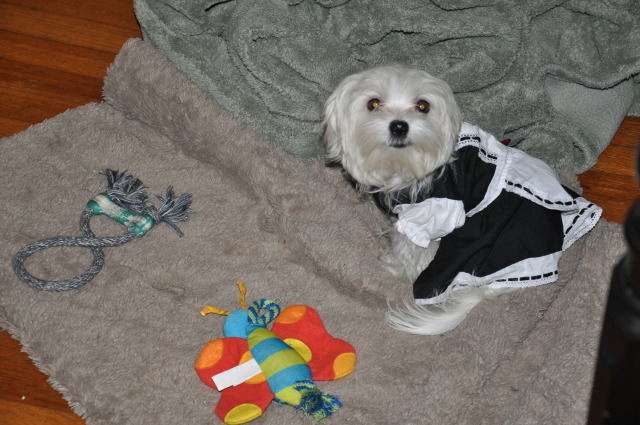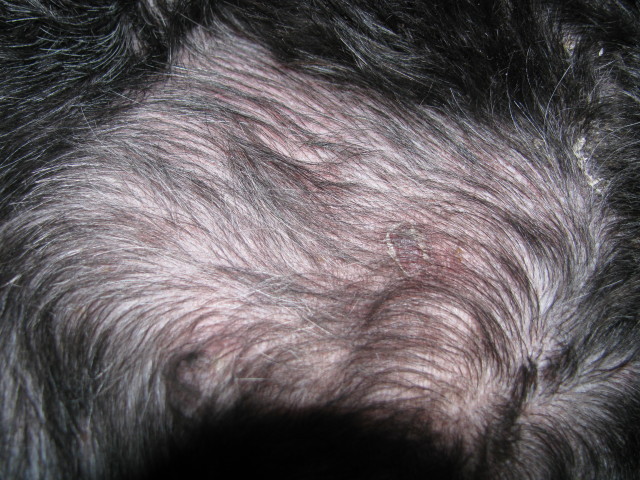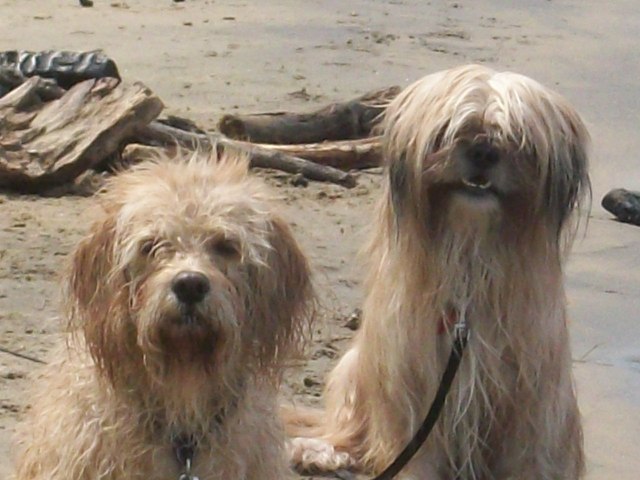Questionhello,
I do have a 4 months german shepherd puppy, I am feeding her a puppy hcow large breed formula, her ears are not up yet ,still down.
one of the petsmart trainer told me that the puppy chow contains corn which can cause skin irritation and suggest me to use royal canine .
please advice me
thank you for your time
AnswerHi Ghali,
Less expensive dog foods can contain cheaper ingredients like corn, and use them as "filler". It's cheaper for the manufacturer to use corn than it is to use meat in their food.
It's true that some dogs have trouble digesting corn based foods, and that many animals develop allergies or intolerance to corn.
A good dog food worth feeding your puppy should not have corn listed in the first 5 ingredients listed on the food's bag. Those first 5 ingredients listed make up the major portion of what the food is made of.
The best dog foods have a named source of protein as the very first ingredient (such as beef, chicken, turkey, etc.) Try to avoid having a "meat by-product" or "meat meal" in the first 5 ingredients.
By-products of any type are less desirable and only are acceptable if they do not make up the main source of animal protein and if the animal species is named. Look for "chicken by-products" or "beef by-products", but not "meat by-products" or "poultry by-products".
Contrary to what many people believe, meat sources in "meal" form (as long as they are from a specified type of animal, such as chicken meal, lamb meal, salmon meal etc.) are not inferior to whole, fresh meats.
After those all important first 5 ingredients, lesser quality ingredients may be present in smaller amounts, these are: fresh by-products indicating a specific named species (such as beef/chicken/turkey/lamb by-products), corn gluten, corn gluten meal. Small amounts, especially of organic corn, are okay as long as a dog is not sensitive to it.
Though acceptable in small amounts, these lesser quality ingredients are not found in truly high quality dog foods.
I should mention that corn often gets an undeserved bad reputation. While it is not acceptable as a main source of protein in a dog food, as a source of carbohydrates it is no better and no worse than other grains in terms of nutritional value and digestibility. Unless an individual dog is intolerant or allergic to corn, there is no need to avoid products which include it in reasonable amounts.
Another thing to watch out for is if your dog's food contains the artificial preservatives BHA, BHT, Ethoxyquin, Sodium Metabisulphite, Propylene Glycol or TBHQ. You should know that those chemicals are potentially cancer-causing agents. Switching to a food that's preserved with Mixed Tocopherols (Vitamin E) or forms of Vitamin C (Ascorbic Acid) is much healthier for your dog.
Avoid dog foods that have a non-specific sources of fat such as animal fat, poultry fat, vegetable oil, generic fish oil, or mineral oil. You want the source of fat identified, just like you do with the protein sources. Look for a named fat source, such as poultry or chicken fat, that is naturally preserved.
Avoid a dog food with added sugars, and artificial colors, dyes or flavorings. High quality foods do not really need any flavorings, but natural ones are harmless.
Blackstrap Molasses is not very sweet, and is a source of many trace minerals and not the same as Cane Molasses. It is harmless as a supplement in small amounts. Avoid foods containing the sweeteners: cane molasses, corn syrup in any form, sugar, sorbitol, sucrose, fructose, glucose, ammoniated glycyrrhizin, propylene glycol. Dietary sugars can aggravate health problems, including diabetes.
I think after comparing the ingredients of your current puppy chow, to those in Royal Canine, you'll see that the quality of Royal Canine's ingredients makes it a superior food. Of course, you need to live within your budget. A good rule of thumb is to buy the very best dog food you can afford. Take the time to read the labels. If you're still in doubt, ask your vetrinaian to suggest a dog food.
Here are two websites with lots of good info of what to look for, and what to avoid in a dog food:
http://www.peteducation.com/article.cfm?cls=2&cat=1661&articleid=2661
http://www.dogfoodproject.com/index.php?page=betterproducts
Remember, if you decide to change dog foods, do so gradually, over a period of about a week. Start with three quarters of the old food, and one quarter of the new food. You should do this for at least two days. After two days or so, add in another quarter, so you have half old food, half new food. Again, keep it at this level for another two days or so. Then add in a third quarter (one quarter old, three quarters new), and finally you can phase out the old food completely
Regarding your puppy's ears not standing up yet, don't worry! You shouldn't expect those ears to stand until until she is 6-8 months old. Feeding your dog a high quality diet will help ensure that her ears will stand correctly. Gently stroking the ears in an upright direction a few times a day seemed to help my dog when he was a baby.
If by age 5-6 months if they don't seem to be getting better, its not time to panic, it is time to sit up and take notice. Ask your vet about taping her ears at that time.
I hope I've been a help.
Best of luck,
Patti

 Potty problems
Question
QUESTION: Hii Okay i have a 6 month old
Potty problems
Question
QUESTION: Hii Okay i have a 6 month old
 Dog fur is flaking off, scabbing, itching like crazy
Question
zacks tummy
Hi,
We have a four-year-old cockap
Dog fur is flaking off, scabbing, itching like crazy
Question
zacks tummy
Hi,
We have a four-year-old cockap
 Puppy hates being alone.
Question
Me and Toby
Our jack russel is extremely cuddl
Puppy hates being alone.
Question
Me and Toby
Our jack russel is extremely cuddl
 re: dog breed
Question
Dog pic question about
Hi Patti,
I took in a
re: dog breed
Question
Dog pic question about
Hi Patti,
I took in a
 Puppy wont come
Question
Capone & Rascal
Help! My seven week
Puppy wont come
Question
Capone & Rascal
Help! My seven week